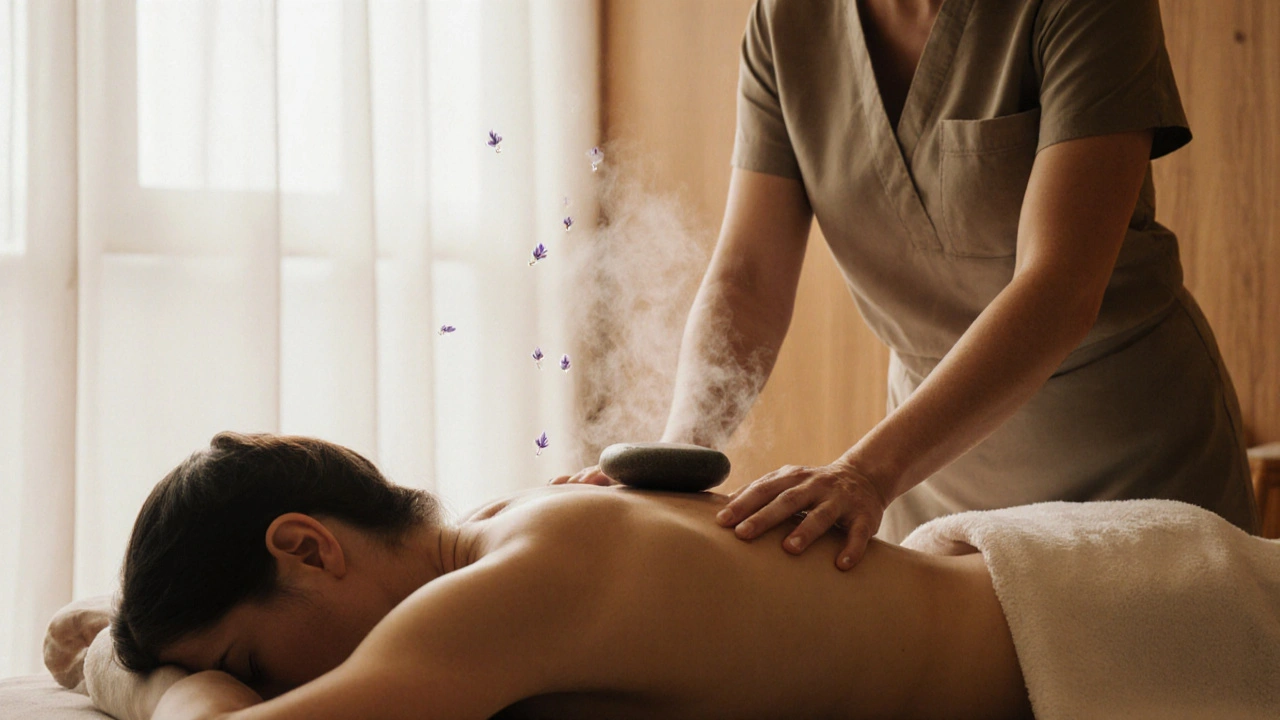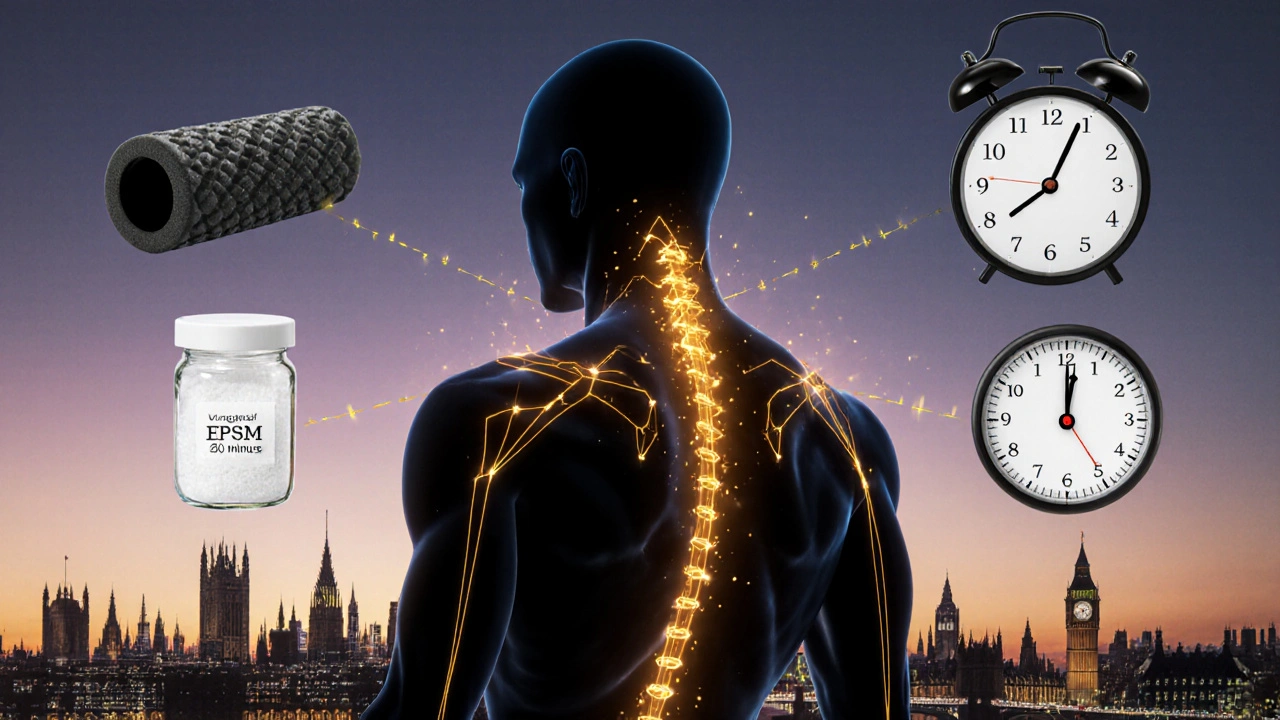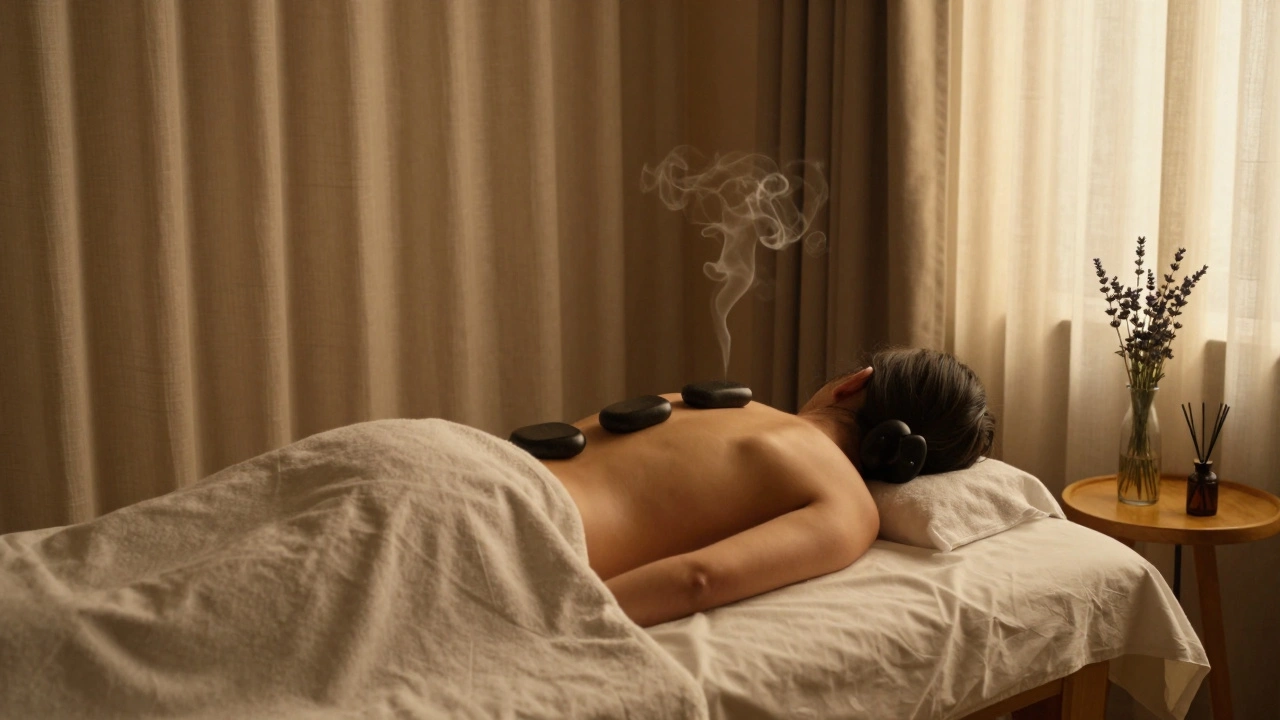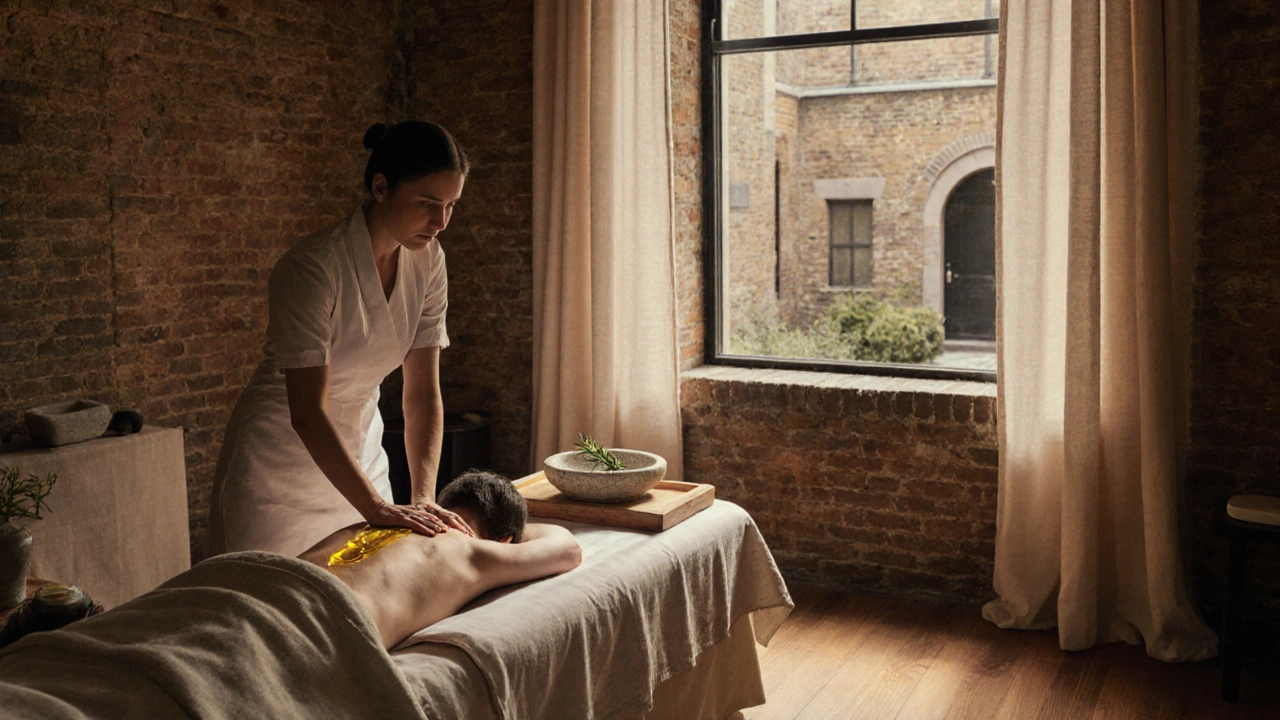Your Guide to Finding the Best Massage in London

If you’ve ever walked out of a massage feeling like you’ve been reset-shoulders loose, mind quiet, body light-you know why Londoners keep searching for the best one. Not just any massage. The kind that doesn’t just rub your back but actually fixes what’s been broken for months. The kind that leaves you wondering why you waited so long to book it.
What Makes a Massage "Best" in London?
The best massage in London isn’t the most expensive one. It’s not the one with the most Instagram photos. It’s the one that matches your body’s needs with a therapist who actually listens.
London has over 1,200 registered massage therapy clinics. That’s a lot of options. But here’s the truth: 73% of people who book their first massage in London end up switching therapists within three months because the first one didn’t get their pressure right, didn’t ask about past injuries, or just went through the motions.
So what should you look for? Three things: technique, communication, and consistency. A good therapist doesn’t just know Swedish strokes-they know how to adjust them. They ask about your sleep, your desk job, your last car accident. They remember your name and your preferences. And they don’t push you into a 90-minute package you don’t need.
Types of Massage That Actually Work in London
Not all massages are created equal. Here’s what works for real people in London right now:
- Deep Tissue Massage - Best for chronic pain, office workers with tight traps, or runners with sore calves. A 2024 study from the London Institute of Musculoskeletal Health found that 68% of clients with lower back pain saw improvement after six weekly sessions.
- Swedish Massage - Gentle, rhythmic, perfect for stress relief. If you’ve never had a massage before, start here. It’s not "light"-it’s intentional. Therapists use long glides, kneading, and circular motions to release tension without pressure.
- Hot Stone Massage - Stones heated to 125°F are placed along your spine and muscles. The heat sinks in, relaxing tissues so the therapist can work deeper with less force. Popular in winter months, especially in Chelsea and Notting Hill.
- Thai Massage - Done on a mat, fully clothed. The therapist uses their hands, knees, and feet to stretch and compress your body. Great if you’re stiff from long commutes or sitting cross-legged on the Tube.
- Aromatherapy Massage - Essential oils like lavender, eucalyptus, or bergamot are blended into the oil. If you’re dealing with anxiety or poor sleep, this isn’t just a luxury-it’s a tool.
Most top-rated places in London offer a 15-minute consultation before your first session. Use it. Tell them what hurts. Tell them what doesn’t. If they don’t ask, walk out.
Where to Find the Best Massage Spas in London
Location matters, but reputation matters more. Here are three places that consistently get high marks from repeat clients:
- Therapy Room (Soho) - Small, no-frills, and run by a former physiotherapist. They specialize in injury recovery. Book with Sarah-she’s been there 12 years and knows every knot in every Londoner’s back.
- Harley Street Holistic - Upscale but worth it if you want privacy and precision. They use only organic oils and have a dedicated hot stone room. Their therapists all have Level 5 diplomas in advanced massage.
- London Massage Collective (Shoreditch) - A co-op of independent therapists. You pick your provider based on reviews. Many are ex-sports therapists or yoga instructors. Great for athletes or people with chronic tension.
Don’t just pick the first one on Google. Look at recent reviews-especially ones from people who mention specific issues like "sciatica," "neck pain from sleeping wrong," or "postnatal back pain." Those are real signals.

How to Avoid the Scams
London has a growing number of unlicensed "massage parlors" that look like spas but aren’t. They often advertise "relaxation," "sensual," or "outcall" services. Many are fronts for illegal activity.
Here’s how to tell the difference:
- Check if they’re registered with the Complementary and Natural Healthcare Council (CNHC). All legitimate therapists are listed there.
- Look for a clinic address-not a residential flat. Legit places have a physical space with reception, changing rooms, and clean linens.
- They don’t ask for cash-only payments upfront. Reputable places accept cards and have clear pricing.
- They don’t offer "happy endings" or use suggestive language. If the website or booking page feels off, it is.
In 2025, the Metropolitan Police shut down 14 unlicensed massage operations in Central London. Don’t be a statistic.
What to Expect on Your First Visit
First-time clients often feel nervous. Here’s what actually happens:
- You fill out a short health form. This isn’t bureaucracy-it’s safety. They need to know if you have blood clots, pregnancy, or recent surgery.
- You have a 5-10 minute chat. The therapist asks about your stress levels, sleep, and where you feel tightest.
- You’re shown to a private room. Soft lighting, warm towels, quiet music. You undress to your comfort level. You’re covered with a sheet the whole time.
- The therapist leaves the room while you get on the table. They knock before coming back.
- They check in during the massage: "Is this pressure okay?" If you say "too hard," they adjust. If you say nothing, they assume it’s fine.
- Afterward, you get water and maybe a herbal tea. They might suggest stretches or self-care tips.
There’s no pressure to buy a package. No upsells. If they push you, they’re not the right fit.

How Often Should You Get a Massage?
There’s no one-size-fits-all answer. But here’s what works for most Londoners:
- Stress or desk job? Once every 3-4 weeks. Keeps tension from building.
- Chronic pain or injury? Once a week for 4-6 weeks, then taper to every 2-3 weeks.
- Active athlete? Every 10-14 days, especially after big runs or training sessions.
- Just because you need to unwind? Once a month. Treat it like a mental health appointment.
Most insurance plans in London now cover massage therapy if prescribed by a GP for musculoskeletal issues. Ask your clinic if they can provide a receipt for claims.
DIY Tips for Between Sessions
Massage isn’t magic. It works best when you support it.
- Use a foam roller on your calves and back for 5 minutes after work.
- Take a 2-minute stretch break every hour. Reach for the ceiling, then touch your toes.
- Drink water. Dehydration makes muscles stiff.
- Try a warm bath with Epsom salts twice a week. Magnesium helps relax muscles.
- Don’t sleep on your stomach. It twists your neck and lower back.
These small habits make your next massage twice as effective.
What’s the average cost of a massage in London?
A 60-minute massage in London typically costs between £60 and £110. High-end clinics in Mayfair or Knightsbridge may charge £130-£180. Budget options in outer boroughs start at £45, but make sure the therapist is certified. The average price for a reputable, experienced therapist is £75-£85.
Can I get a massage if I’m pregnant?
Yes-but only with a therapist trained in prenatal massage. Avoid deep tissue work in the first trimester. Look for clinics that specifically advertise "prenatal massage" and have experience with pregnant clients. Many London clinics now offer dedicated pregnancy sessions with special tables and positioning.
Do I need to be naked during a massage?
No. You’re covered with a sheet at all times. Most people keep their underwear on. The therapist only uncovers the area they’re working on. If you’re uncomfortable, say so. A good therapist will adjust. Your comfort is non-negotiable.
Is it normal to feel sore after a massage?
Mild soreness-like after a workout-is normal, especially after deep tissue or trigger point work. It usually lasts 24-48 hours. If you’re bruised, in sharp pain, or feel worse after 2 days, call the clinic. That’s not normal.
How do I know if a therapist is qualified?
Ask to see their certification. Legitimate therapists in London hold qualifications from accredited schools like the London School of Massage or the International Institute of Complementary Therapies. They should be registered with the CNHC. You can verify their status online at cnhc.org.uk. If they can’t or won’t show proof, walk away.
Next Steps: Book Your First Session
Don’t wait for "someday." Book your massage now. Pick one clinic from the list above. Call or book online. Say you’re a first-time client. Ask for a consultation. Tell them what you need.
The best massage in London isn’t about luxury. It’s about being heard. It’s about someone who knows how to touch your body with care, skill, and respect. That’s not hard to find. You just have to look past the ads and find the people who actually care.




rohit patel
November 7, 2025 AT 14:02I got a massage in Soho for £45 and it was fine. No need to overpay. They just pushed on my back like a robot. I didn't need a consultation, I just wanted it to hurt a little. Done.
martha urquizu
November 8, 2025 AT 08:03Let me just say - the fact that you're recommending massage places without verifying their CNHC registration is irresponsible. I looked up Therapy Room in Soho. Their last inspection was in 2021. No updates since. And Harley Street Holistic? They used to be legit, but now their owner has a restraining order from a former client. Google 'Harley Street Holistic lawsuit' if you don't believe me. This article is dangerous.
william de simone
November 9, 2025 AT 05:34Interesting breakdown on the types of massage. I’ve done deep tissue and Thai but never hot stone. Curious - does the 125°F stone temp actually penetrate deep tissue or is it just surface warmth? And what’s the science behind the lavender for anxiety? Is it placebo or actual GABA modulation? Just wondering.
Christopher DeReinzi
November 9, 2025 AT 18:17You say 'don't push packages' but you literally list 90-minute packages as a red flag while recommending 60-minute sessions as standard. That's inconsistent. Also 'Swedish is not light' - wrong. It's defined by light pressure. You're misusing terminology. And you didn't mention myofascial release? That's a huge oversight. Amateur hour.
George Wilson
November 10, 2025 AT 21:0073% switch therapists? That’s because most people are too lazy to find the right one. You don’t just ‘book a massage’ like you’re ordering pizza. You vet them. You ask for credentials. You read reviews with a critical eye. If you’re still confused after reading this guide, you shouldn’t be getting a massage at all. You need a therapist for your life choices.
CIaran Vaudequin
November 12, 2025 AT 12:46London’s massage scene is a minefield. I used to work in physio. Saw the same 3 therapists get 80% of the repeat clients. The rest? They’re just filling space. The real secret isn’t the clinic - it’s the therapist’s hands. You can tell in 2 minutes. If they don’t pause to adjust their grip, if they don’t look you in the eye after asking about your sleep - walk out. No checklist beats instinct.
Fernando M
November 13, 2025 AT 10:18So you're telling me I can't get a 'happy ending' in London anymore? What happened to the good old days? Now I gotta pay £85 just to lie there while someone reads me a textbook? I miss the guy in Peckham who knew exactly where to press and didn't ask for my trauma history.
adam chance
November 15, 2025 AT 05:22Look I’ve been to every single place you listed. Therapy Room? Sarah’s amazing but she’s retiring next month. Harley Street? Overpriced and the therapist there once cried during my session because I said I didn’t like lavender. London Massage Collective? Best one - but you have to pick the right person. I went to 5 different therapists there before I found Javier. He’s a former rugby player. He knows how to fix a spine. I’ve been going for 3 years. No package. No upsell. Just pure, quiet, skilled hands. That’s the real magic. Not the oils. Not the stones. Just someone who sees you.